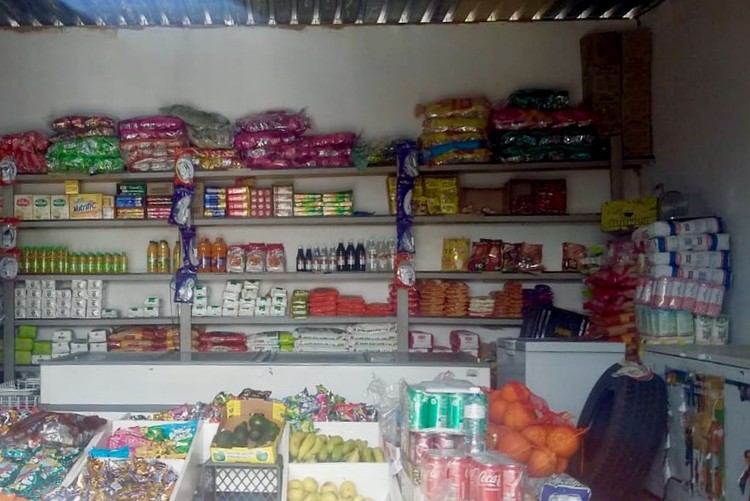Somali shop owners fear turf war between extortion gangs
“Policing” in Philippi is done by criminal syndicates
People in Philippi, Cape Town, struggled to buy basic groceries on Saturday because spaza shops were ordered by a new protection syndicate to close for the day. Photo: Sandiso Phaliso
- On Saturday Somali spaza shop owners in Philippi were forced to close up for the day by a new extortion syndicate.
- The shopkeepers say they are already paying protection money to another gang and are caught in the middle.
- A community member explained that the protection rackets have been effective in stopping robberies by paying off criminals and are now the township’s policing mechanism.
Somali shopkeepers in Philippi, Cape Town, closed their shops for almost 12 hours on Saturday. They say a new criminal syndicate turned up demanding that they pay a “protection fee” if they wished to continue trading.
A group of men in a white Avanza visited numerous shops, demanding protection money – between R1,000 and R2,000 a month – GroundUp was told.
The shopkeepers have already been paying a syndicate every month for some time now.
Besides the inconvenience of the closure of the shops on Saturday, which left residents struggling to find basic groceries, people fear that a turf war will erupt between the criminal syndicates.
Mzikayise Pawu, a resident, said, “We struggled to buy something as simple as bread [on Saturday]. I had to use R20 for transport to buy bread.”
A Somali shop owner told GroundUp the new gang told them to close for the day and they complied. “I made calls to other shops and found out they also experienced the same thing,” he said.
“The guys that we normally pay heard that these new guys came and they told us to open and not pay the new guys.”
“We are caught in the middle, because if we don’t pay each of these guys, our lives are at risk. Basically, this means we will be paying two gangs of criminals. We are scared,” said the shopkeeper.
Such extortion rackets are seldom reported to police as shopkeepers fear retaliation.
A community leader, who did not want to be named, said robberies at spaza shops and damage to landlords’ property were commonplace before the protection rackets stepped into the policing vacuum.
“When a spaza shop or local business is broken into, the extortion gang ensures that the culprits are found, stock is returned, and damage fixed,” they said.
“So what happens is that most of those who used to break into spaza shops are now recruited into a web of street intelligence. So they don’t break in anymore but protect. For this to work all the protection money collected monthly – and it’s a shit load of money given the number of spaza shops – must pay this host of young criminals.”
“So you can imagine a group of local youngsters earning over R10,000 a month through payments from extortion. This money goes into household and support families, paying for education, food, furniture and house improvements.
“The community also benefits because shops are now open uninterrupted in some cases until 11pm instead of the usual 9pm. The spaza shops are very convenient for the community because they are well placed — literally, there is one in every street. You can also get stuff on credit, use it as an ATM. They even loan trusted customers. So when the extortion gang protects spaza shops they also do local policing.”
Support independent journalism
Donate using Payfast

Don't miss out on the latest news
We respect your privacy, and promise we won't spam you.
Next: In photos: Cape Town’s flooded townships
Previous: South African scientist hopes to head world’s most important climate change body
© 2023 GroundUp. This article is licensed under a Creative Commons Attribution-NoDerivatives 4.0 International License.
You may republish this article, so long as you credit the authors and GroundUp, and do not change the text. Please include a link back to the original article.
We put an invisible pixel in the article so that we can count traffic to republishers. All analytics tools are solely on our servers. We do not give our logs to any third party. Logs are deleted after two weeks. We do not use any IP address identifying information except to count regional traffic. We are solely interested in counting hits, not tracking users. If you republish, please do not delete the invisible pixel.

